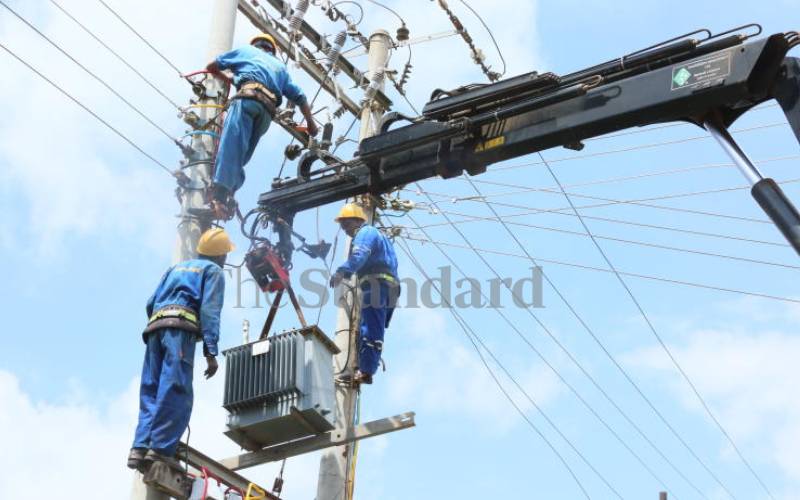Kenya Power workers fix a transformer at Ndimaini Village in Karatina, Nyeri. December 28, 2020. Kenya Power has in the recent past found itself in the spotlight for the wrong reasons, again.
The State-owned power distributor’s board of directors has had run-ins with the Ethics and Anti Corruption Commission (EACC) and the National Assembly’s Energy Committee over claims of impropriety and usurping the management’s role.
EACC recently launched investigations into the board over alleged interference in the management’s work as well as the award of tenders. The investigation, coming hot on the heels of the unceremonious exit of immediate former chief executive Bernard Ngugi . READ MORE
In a letter dated August 5, 2021, EACC Chief Executive Maj (Rtd) Twalib Mbarak wrote to the Kenya Power chairperson Vivienne Yeda and acting CEO Rosemary Oduor indicating the reason for the probe.
He said the removal of Ngugi was attributed to the conflict of interest.
“The commission is undertaking investigation on the reported complaints to inform further action against those found culpable,” stated the EACC boss.
The giant Kenya Electrical Trades and Allied Workers’ Union (Ketawu) has also weighed in on the issue and wants the board disbanded over claims that it is interfering with how the management runs the company.
The board, which was put in place a year ago, had been billed as a dream team of sorts, considering that the directors are leaders in their respective industries and have steered major brands to success.
The board was expected to steer the firm out of a financial rut that saw it post a loss of nearly Sh1 billion last year.
The board’s relationship with stakeholders, including employees, has been at a low ebb, mirroring the power distributor’s financial performance.
Left to constantly fight off allegations of corruption and a rift with the management, the directors are yet to show their mettle.Some of the issues bedevilling the firm include expensive loans, high system losses, poor governance and political interference.Sources at the power firm said the management had around 2015 spotted areas that are expected to give the company immediate returns.It then went ahead to borrow heavily with a preference for commercial loans that are easily accessible compared to concessional loans that take longer to process.Total borrowings grew to Sh122 billion in 2018, nearly three times the Sh43 billion the firm borrowed in 2013. The debt, however, went down to Sh109.96 billion in June last year.While the money was partly […]
